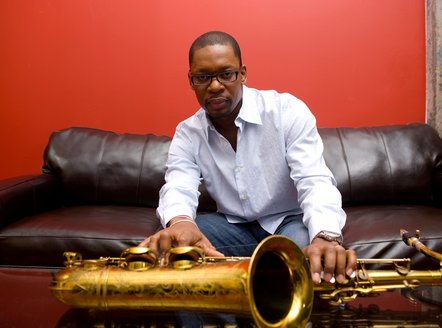30 July 2022 saw the death of Nichelle Nichols, Afro-American actress and singer – better-known as Lieutenant Uhura in the series »Star Trek«. She was not only one of the first Black women to play in a mainstream TV series: her role as communications officer on the bridge of the USS Enterprise was also a statement – a commentary on racism and injustice at the time »Star Trek« first aired in the 1960s. The spaceship's journey to the far reaches of the galaxy and into the future represented an escape from and an alternative to the repressive regimes on planet Earth.
»In order to work toward a better future, we need to believe that future is possible.«
Angela Davis, author
It's already a revolutionary act to imagine a better future; Lieutenant Uhura's very existence is nothing short of a rebellion against the status quo of exploitation. A rebellion against a world in which Black women had thitherto never been seen as leaders, heroines or icons, even though they were: white men would never have made it into outer space without the contribution of Black women like the NASA mathematicians Dorothy Vaughan and Katherine Johnson.

Focus Afrofuturism
In the 2022/23 season, the Elbphilharmonie is devoting a special spotlight to Afrofuturism, featuring legendary figures from the movement like the Sun Ra Arkestra as well as new sounds from the young generation such as Sons of Kemet or Theo Croker.
For a better future
With his 1993 essay »Black to the Future«, American cultural theorist Mark Dery became one of the first people to apply the term Afrofuturism to this new genre that focused on the high-tech culture of the 20th century in the context of Afro-American issues. »Can a community imagine potential futures when its past has been deliberately wiped out, prompting it to expend energy on searching for traces of this past?«, Dery's pathbreaking text asks in the light of the exploitation, degradation and systematic destruction of Africans' cultural heritage. Afrofuturism has a clear answer to this question: yes! Different imagined visions of the future help reassemble the shredded past and, to a certain extent, help to process it.
Afrofuturism takes a look at the painful question of origin and at present-day problems, partly through imagining a future where these issues have been solved thanks to technological development and by spiritual recourse to the past. Author Ytasha Womack sums up Afrofuturism as »the interface between Black culture, technology, liberation and the power of imagination, combined with a dose of mysticism«.
»Afrofuturism forges a link between the past and the future, rethinking the Black experience of the world.«
Ytasha Womack
Sun Ra: »Space is the Place«
Time after time, the individual is the centre of attention, surrounded by a strange and estranged world – as in the space-age aesthetics of Sun Ra's (1914 –1993) narrative. This out-of-the-ordinary musician, who popularised Afrofuturism like no one else did, claimed that he had come to Earth from the planet Saturn with the aim of preaching peace through his music and of leading Black people towards a better future.
»Space is the Place!« was Sun Ra's motto and the title of his famous 1974 experimental film. The tool he used was a sound aesthetic so unfettered by the corset of the past as only a traveller from outer space could be unbound by the racist realities prevalent on Earth. Free jazz had been born.
Afrofuturism today
Afrofuturism's underlying ideas continue to make their mark on the art and culture of the African diaspora to this day: examples range from Miles Davis's galactic excursions on »Bitches Brew« through the cosmic leanings in the works of John and Alice Coltrane to Kamasi Washington's 2015 album »The Epic« and the new jazz from Great Britain, e.g. the music of Shabaka Hutchings. In his musical projects such as Sons of Kemet or The Comet is Coming, the young saxophonist throws light on Afrofuturism from different angles – and with great international success.
Sons of Kemet – Black to the Future (Hustle)
Afrofuturism in Film
Afrofuturistic aesthetics and content have long since emerged from the underground and are increasingly moving into the mainstream: early examples are the music videos made by Michael Jackson or Missy Elliott in the 1990s and early 2000s, which paved the way for music films such as Janelle Monaé's »Dirty Computer« (2018) and Beyoncé's »Black is King« (2020) – and of course for the 2018 cinema film based on the cartoon »Black Panther«, which conclusively made Afrofuturism accessible to the masses.
In her epilogue to »Four Hundred Souls«, an anthology about over 400 years of Black life in the USA since the first Africans were abducted to the colonies in 1619, the editor Dr. Keisha Blain writes the following about the claim »I am my ancestors' wildest dreams«, widespread amongst America's Black community: »Although I doubt that we are our ancestors' wildest dreams, I do believe that we will become that. We can help find a way that will lead us all into a better future – the kind of future that will be much closer to our ancestors' wildest dreams.«
Text: Aida Baghernejad, lust updated: 05.08.2022
English translation: Clive Williams
Focus Afrofuturism :Events
- Elbphilharmonie Großer Saal
Elbphilharmonie Sommer / Internationales Sommerfestival Kampnagel
Past Concert - Elbphilharmonie Kleiner Saal
Angel Bat Dawid & Tha Brothahood
Fokus Afrofuturism
Past Concert - Elbphilharmonie Kleiner Saal
Chief Xian aTunde Adjuah (Christian Scott)
Fokus Afrofuturism / Fokus Jazz Trumpet
Past Concert - Elbphilharmonie Großer Saal
»Cosmic Music« – Fokus Afrofuturism / Jazz at the Phil
Past Concert - Elbphilharmonie Kaistudio 1
Afrofuturism – Vision of the future
Interactive Lecture with Sammus / Elbphilharmonie+
Past Concert - Elbphilharmonie Kleiner Saal
»LOVE QUANTUM« – Fokus Afrofuturism / Fokus Jazz Trumpet
LivestreamPast Concert - Elbphilharmonie Großer Saal
Fokus Afrofuturism
Past Concert















